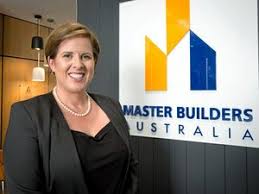Time to lift the handbrake on building industry - Master Builders
THE latest National Housing Finance Investment Corporation (NHFIC) State of the Nation’s Housing 2022-23 report has confirmed builders’ concerns about achieving Australia’s housing needs.
Master Builders Australia CEO Denita Wawn said the report was more evidence "that we are falling well short of the 200,000 homes needed each year to keep up with demand and address housing affordability challenges".
“Rising interest rates and declining sales for new home construction is weakening the pipeline of new housing, which is compounded by a stronger than anticipated recovery in migration," Ms Wawn said.
“There is fragility and volatility in the industry at the moment that has been a consequence of businesses working predominantly with fixed price contracts that were set pre-COVID.
“The industry has been relatively resilient over the last decade. Some of the insolvency data we are seeing coming through is a reflection of the challenges over the last 18 months, and we hope the worst is behind us. 
“But we are alert to the combination of rising inflation and interest rates, labour shortages and unnecessary government hurdles which are making it difficult for builders," MsWawn said.
“A strong building industry is the foundation of a strong economy. The inextricable ties between construction activity and the broader health of the economy are again on display in the current environment.
“To achieve better housing affordability and keep up with demand, changes need to be made to the way we do things, now and over the long term.
“The government needs to take the necessary steps to ensure interest rates do not need to rise any further and take some of the heavy lifting of our correction off mortgage holders and business owners. From here, there are no easy choices.
“There needs to be a conversation around fixed-price contracts and appropriate risk-sharing between banks, developers and builders,” Ms Wawn said.
Master Builders’ Delivering the housing needs for all Australians recommends policies around housing supply, workforce, supply chain risk and cost pressures, simplifying regulatory settings that support investment in housing and business productivity.
“Governments must lift the handbrake on the building and construction industry by bringing down the cost of doing business.
“We need around half a million new entrants into our industry by 2026 to ensure homes get built, and the broader construction ecosystem of infrastructure and commercial premises can be delivered.
“Governments need to look at what impact their regulations and policies have on the cost of building homes and on the cost of building social infrastructure; that includes industrial relations laws, the cost of planning and the need for more titled land.
“The Housing Accord is the start of this national coordination, but we can’t wait until 2024; action by states is needed now.
“There is no silver bullet; this will take a concerted effort by all levels of government working in collaboration with industry,” Ms Wawn said.
ends

 How to resolve AdBlock issue?
How to resolve AdBlock issue?